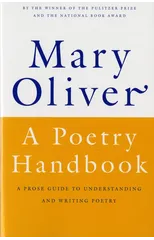Dream Work, a collection of forty-five poems, follows both chronologically and logically Mary Oliver's American Primitive, which won for her the Pulitzer Prize for the finest book of poetry published in 1983 by an American poet. The depth and diversity of perceptual awareness-so steadfast and radiant in American Primitive-continue in Dream Work. Additionally, she has turned her attention in these poems to the solitary and difficult labors of the spirit-to accepting the truth about one's personal world, and to valuing the triumphs while transcending the failures of human relationships. Whether by way of inheritance-as in her poem about the Holocaust-or through a painful glimpse into the present-as in "Acid," a poem about an injured boy begging in the streets of Indonesia-the events and tendencies of history take on a new importance also. More deeply than in her previous volumes, the sensibility behind these poems has merged with the world. Mary Oliver's willingness to be joyful continues, deepened by self-awareness, by experience, and by choice.
Mary Oliver
Mary Oliver (1935-2019) was an American poet known for her profound connection to nature and exploration of the human experience. Her lyrical and accessible poems often focused on themes of love, loss, and the beauty of the natural world. Some of her most notable works include "American Primitive," "A Thousand Mornings," and "Devotions." Oliver's poetry has had a significant impact on the genre of nature poetry, inspiring readers to connect with the world around them in a more meaningful way. Her most famous work, "Wild Geese," continues to resonate with readers for its timeless themes of acceptance and belonging. Oliver's legacy as a poet continues to influence and inspire writers and nature enthusiasts around the world.











